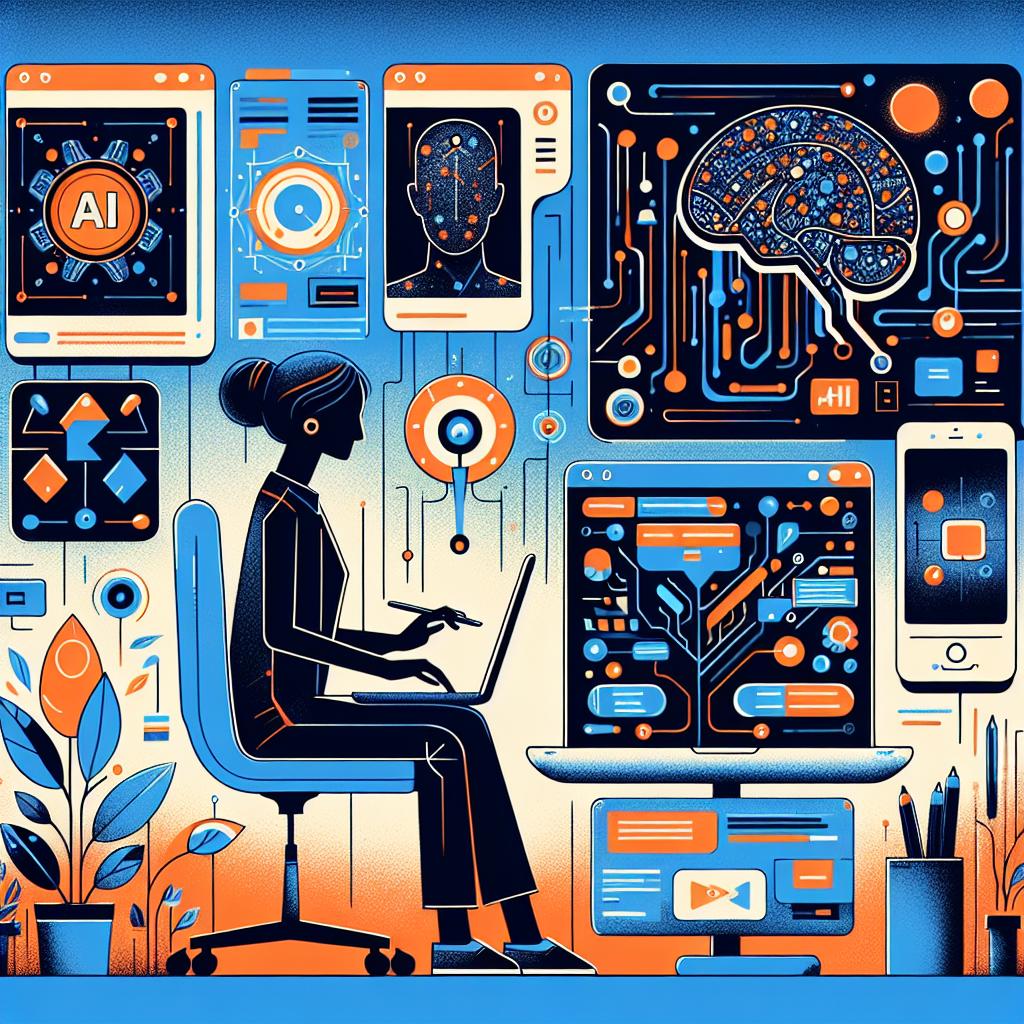
Emerging Trends in Front-End Development: The Future of Engineer Hiring and AI Integration

Emerging Trends in Front-End Development: The Future of Engineer Hiring and AI Integration
Current Demand for Front-End Engineers and AI's Role in Development
As of May 2025, the tech industry is witnessing a substantial shift in hiring trends, particularly for front-end engineers. Companies like Meta are increasingly focusing on enhancing user experiences, which has generated a surge in interview requests for engineering positions. This growing demand is projected to continue, driven by the necessity for proficient developers who can create responsive and accessible web interfaces. The average growth rate of job postings for front-end developers has risen by 15% annually since 2020, indicating a sustained upward trajectory.
Simultaneously, Meta's recent initiative to train AI models using public content from its platforms marks a significant evolution in how AI systems are developed. This move not only underscores the importance of localized AI but also illustrates how emerging technologies are set to reshape engineering, allowing for more tailored and culturally resonant applications. By incorporating user-generated interactions into AI training, Meta is working to enhance both performance and inclusivity in its products.
What these developments suggest is a future where the intersection of engineering and artificial intelligence becomes crucial. As AI evolves to support software development processes, positions that require expertise in both front-end engineering and AI technologies are expected to experience increased hiring activity. The rise of collaborative AI tools, as indicated by innovations like CollaborativeAgentBench, suggests that developers will need to work alongside advanced AI systems, enhancing productivity and potentially transforming software development methodologies.
Glossary
- Front-End Engineer [Person]: A software engineer who specializes in the development of the user interface and user experience of web applications, focusing on how users interact with the website.
- Meta [Company]: A technology company formerly known as Facebook, which focuses on building advanced social media platforms and technologies that support enhanced user experiences.
- AI Models [Technology]: Artificial intelligence systems that are designed to learn from data and make predictions or decisions based on that information, significantly influencing software development.
- Responsive Web Interfaces [Concept]: Web designs that adapt smoothly to different screen sizes and orientations, ensuring that users have an optimal experience regardless of their device.
- Collaborative AI Tools [Technology]: Innovative software solutions that enable developers to work in conjunction with AI systems to enhance workflow efficiency and software development capabilities.
- CollaborativeAgentBench [Product]: A tool or framework that enables assessment of collaborative AI capabilities, aimed at improving productivity in software development.
Source Documents
- Meta Uses EU Public Content to Train Localized AI Modelshttps://newscentral.africa/meta-taps-eu-users-public-content-to-advance-regionally-aware-ai-models/
- Front-End Developer Technical Interview Preparation Course - Google Amazon Meta Apple Front-End Engineer Jobs 2025 Updatehttps://finance.yahoo.com/news/front-end-developer-technical-interview-223300275.html
- Front-End Developer Technical Interview Preparation Course - Google Amazon Meta Apple Front-End Engineer Jobs 2025 Update | The Manila Timeshttps://www.manilatimes.net/2025/04/16/tmt-newswire/globenewswire/front-end-developer-technical-interview-preparation-course-google-amazon-meta-apple-front-end-engineer-jobs-2025-update/2093151
- Introduction of CollaborativeAgentBench in Backend Programming and Frontend Design | Flash News Detailhttps://blockchain.news/flashnews/introduction-of-collaborativeagentbench-in-backend-programming-and-frontend-design